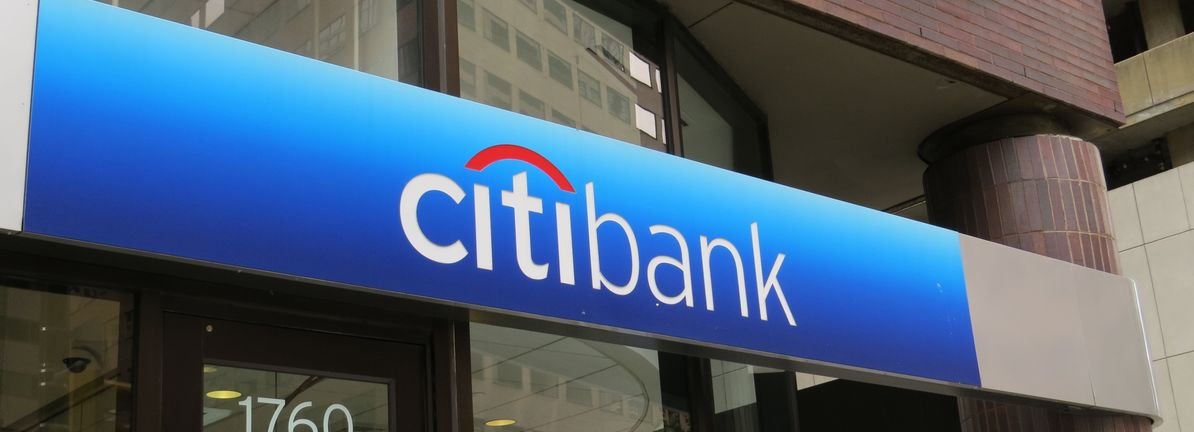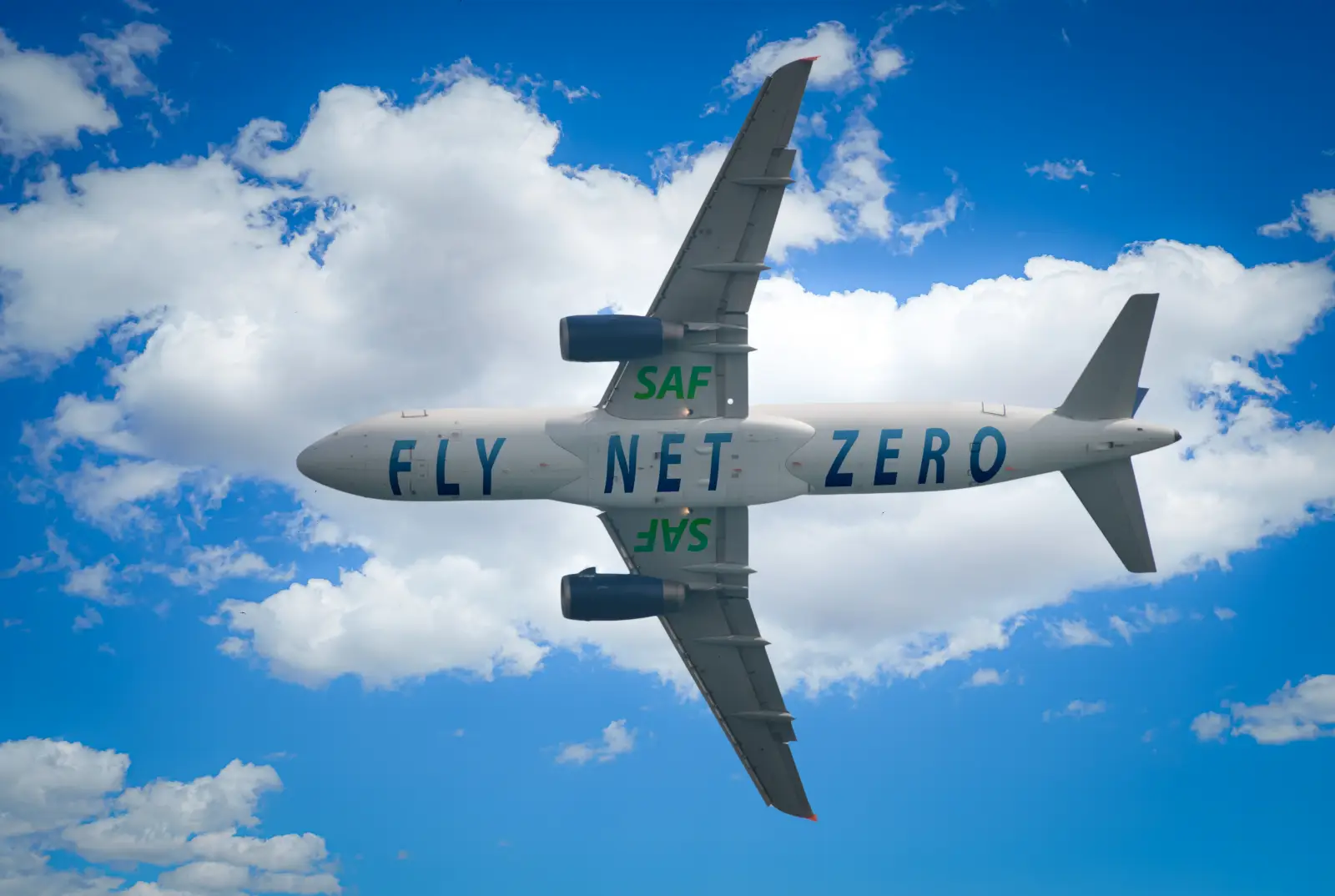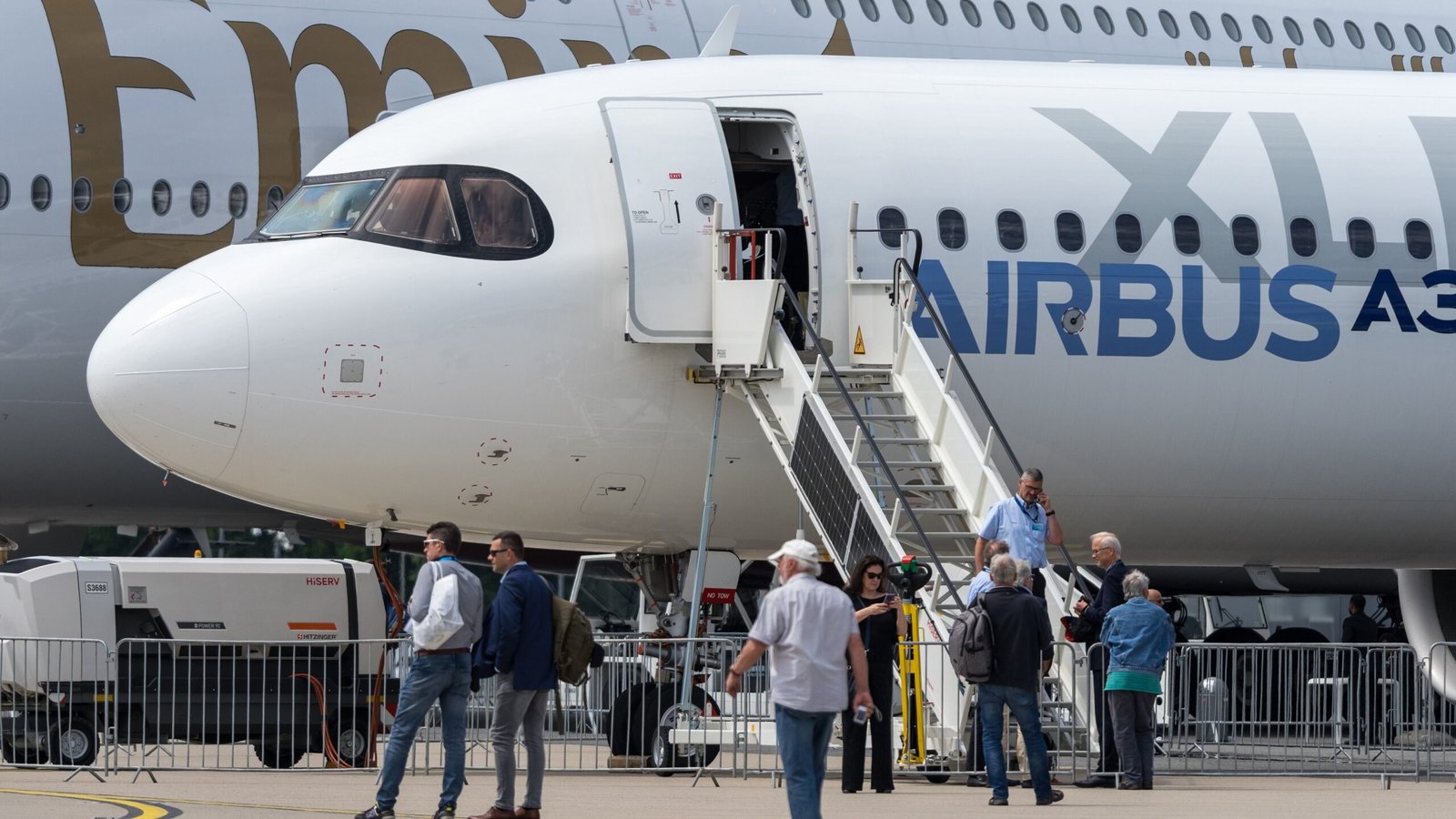Flight Buzz
Citigroup (C) Partners With Ant International For Enhanced FX Solutions In Aviation Industry

Citigroup (C) recently initiated a pilot FX risk management solution with Ant International, targeting the aviation industry’s payment challenges. Over the last quarter, Citigroup’s share price rose by 48%, significantly outperforming the broader market rise of 15% over the past year. This impressive performance can be partly attributed to the company’s strong earnings report, where net income increased from the previous year, and its active share buyback strategy. Additionally, the inclusion of Citigroup in various Russell indices and multiple dividends announcements likely provided further momentum to the stock’s gains.
Buy, Hold or Sell Citigroup? View our complete analysis and fair value estimate and you decide.
The recent announcement of Citigroup’s pilot FX risk management solution with Ant International highlights its ongoing efforts to address challenges in the aviation industry’s payment systems. This initiative could have positive implications on Citigroup’s revenue and earnings forecasts, as it aligns with the company’s strategic focus on innovation and client acquisition, potentially enhancing operational efficiency and widening profit margins.
Over a five-year period, Citigroup’s shareholders enjoyed a total return of 118.37%. This longer-term performance underscores the company’s ability to generate value through market cycles, despite the challenges it faces due to economic and geopolitical uncertainties. Over the past year, Citigroup outperformed the broader market, delivering returns above the market’s 15% increase.
When examining the current share price of US$93.45 relative to the consensus price target of approximately US$99.12, there remains a modest discount of approximately 6%. The company’s recent achievements and strategic initiatives may influence analysts’ projections, potentially resulting in upward revisions to revenue and earnings estimates. Nonetheless, it’s important to continuously assess the impact of macroeconomic factors, regulatory changes, and trade challenges that could alter these forecasts.
Evaluate Citigroup’s historical performance by accessing our past performance report.
This article by Simply Wall St is general in nature. We provide commentary based on historical data
and analyst forecasts only using an unbiased methodology and our articles are not intended to be financial advice. It does not constitute a recommendation to buy or sell any stock, and does not take account of your objectives, or your
financial situation. We aim to bring you long-term focused analysis driven by fundamental data.
Note that our analysis may not factor in the latest price-sensitive company announcements or qualitative material.
Simply Wall St has no position in any stocks mentioned.
New: AI Stock Screener & Alerts
Our new AI Stock Screener scans the market every day to uncover opportunities.
• Dividend Powerhouses (3%+ Yield)
• Undervalued Small Caps with Insider Buying
• High growth Tech and AI Companies
Or build your own from over 50 metrics.
Have feedback on this article? Concerned about the content? Get in touch with us directly. Alternatively, email editorial-team@simplywallst.com
Flight Buzz
IATA Chief talks about tariff uncertainties, EU’s sustainable aviation fuel and low cost carrier model

The director-general of the International Air Transport Association (IATA), Willie Walsh, was in Singapore recently where he talked about strategic and significant issues facing the aviation industry. These include the uncertainties surrounding the impending U.S tariffs and the viability of low cost carrier models upon the exit of Qantas’ owned Jetstar. He also heavily criticised the EU’s sustainable aviation fuel (SAF).
U.S. tariffs may cause airlines to refuse delivery of aircraft
Airlines may be reluctant to take delivery of aircraft due to the ongoing uncertainty around U.S. tariffs and their impact on the cost of the planes, Walsh said, as reported by Reuters.
“It’s not just going to be a major Boeing and Airbus issue. It’ll impact all aspects of the aerospace industry and have an impact on most, if not all, airlines as well,” he said.
The 50% tariff that U.S. President Donald Trump plans to impose on Brazilian exports starting in August could hammer the revenue of planemaker Embraer like the COVID-19 pandemic did, its CEO Francisco Gomes Neto, warned last week, flagging risks to U.S. partners.
Neto said the tariffs would amount to a trade embargo on the regional jets it supplies to U.S. airlines and could trigger order cancellations, deferred deliveries and tough consequences for Embraer’s U.S. suppliers.
EU’s green fuel mandate costly, not helping environment
IATA also stepped up criticism of the European Union’s sustainable aviation fuel (SAF) mandate as a costly initiative that is not helping the environment as regional supplies there remain low.
“The idea that you’re buying sustainable fuel and then transporting it to use in Europe isn’t the right way to do it, because you’re clearly increasing the carbon footprint of that fuel as a result of the transportation costs,” Walsh said.
IATA estimated in June that production of SAF, which is considered a low carbon replacement for traditional jet fuel is expected to reach two million tonnes, or 0.7 per cent of airlines’ fuel consumption, in 2025.
“Mandating the use of a product that isn’t available doesn’t lead to any environmental benefit,” Walsh said, adding that fuel companies that have an obligation to produce SAF are also increasing the cost of traditional jet fuel.
By IATA’s assessment, he said “the cost that they’re charging is way in excess of the actual cost of the limited supplies of sustainable fuel”.
“The EU in effect has facilitated monopoly suppliers to increase prices with no environmental benefit,” said Walsh, adding that the region needs to re-evaluate its SAF targets.
Under the ReFuelEU Aviation requirement, airlines need to have a six per cent SAF blend in their jet fuel usage by 2030. The EU is offering some subsidies for SAF purchases by airlines, Reuters reported in June.
On the supply front, at least five SAF projects in Asia, outside of China, have started up or are earmarked to start production in 2025, targeting exports regionally and to Europe. Singapore is among key exporters of the green fuel to the EU.
Walsh also questioned the use of palm oil as a means to produce sustainable fuel.
“I think that you could argue there is sustainable palm oil and there is palm oil that wouldn’t be considered sustainable, and I think in some parts of the world there it’s too black and white,” Walsh said.
We need to have a much more “nuanced approach” to the usage of palm oil as a feedstock and “much more detailed assessment of the sustainability of the feedstock”, he added.
Low-cost carrier model remains viable, but may not work at every airport
The budget airline model is not dead, but it does not always work at every airport, said Walsh. He added that it probably does not make sense for budget carriers to operate at certain airports because of their nature or cost structure.
“Just because you see some low-cost airlines exiting the market, I don’t think you can read across that the business model is not relevant for the future,” he said. “I firmly believe it is and will continue to be. But it doesn’t always work at every airport. Airlines that are labelled budget or low-cost, that doesn’t necessarily guarantee their financial success.”
The viability of budget airlines at high-cost airports such as Changi Airport was thrust into the spotlight after Jetstar Asia said it was exiting Singapore at the end of July, flagging increased competition and operating costs as some push factors.
“Heathrow Airport is no different. For example, there’s no real low-cost operation at Heathrow, principally because of the cost of the airport and the access to slots.”
The airline industry is a highly competitive one, Walsh added. He pointed out that, although 408 new airlines were started in the past decade to December 2024, there were 420 failures as well, making a net loss of 12. Profitability on a global level is wafer-thin – the net profit margin this year is forecast at 3.7 per cent.
Photo Credit: Ivan Marc / Shutterstock.com
Flight Buzz
CDB Aviation and Loong Air Execute Lease Agreements for Six A321neo Aircraft

Aircraft Will Support Airline’s Fleet Expansion and Modernization Strategy
HANGZHOU, China, July 20, 2025–(BUSINESS WIRE)–CDB Aviation, a wholly owned Irish subsidiary of China Development Bank Financial Leasing Co., Ltd. (“CDB Leasing”), announced the execution of new lease agreements for six Airbus A321neo aircraft with its Chinese airline customer, Zhejiang Loong Airlines Co., Ltd. (“Loong Air”).
The Hangzhou-headquartered carrier is expected to take delivery of the aircraft in 2027 from the lessor’s orderbook. Renowned for its fuel efficiency, reduced carbon emissions, and extended range capabilities, the A321neo, the largest member of Airbus’ A320neo family, is well suited to enhance Loong Air’s operational efficiency and sustainability goals.
“We are pleased to strengthen our partnership with Loong Air through this transaction, which underscores our commitment to supporting the growth of China’s aviation sector,” said Jie Chen, Chief Executive Officer of CDB Aviation. “The A321neo’s superior economics and passenger comfort align perfectly with Loong Air’s vision of expanding its domestic, international and regional network.”
Established in 2011, Loong Air operates a fleet of over 70 Airbus A320-family aircraft, serving major Chinese cities and select international routes. The addition of the A321neos will enable the airline to boost capacity on high-demand routes while maintaining its focus on cost efficiency and environmental responsibility.
“This agreement marks another milestone in Loong Air and CDB Aviation’s strategic partnership of more than 10 years,” commented Qihong Liu, Chairman of Loong Air. “We also hope to continue to explore new opportunities of cooperation with CDB Aviation and jointly promote innovative development in the future. The A321neo’s enhanced performance and cabin flexibility will allow us to offer an elevated travel experience to our passengers, while supporting our long-term sustainability objectives.”
Forward-Looking Statements
This press release contains certain forward-looking statements, beliefs or opinions, including with respect to CDB Aviation’s business, financial condition, results of operations or plans. CDB Aviation cautions readers that no forward-looking statement is a guarantee of future performance and that actual results or other financial condition or performance measures could differ materially from those contained in the forward-looking statements. These forward-looking statements can be identified by the fact that they do not relate only to historical or current facts. Forward-looking statements sometimes use words such as “may,” “will,” “seek,” “continue,” “aim,” “anticipate,” “target,” “projected,” “expect,” “estimate,” “intend,” “plan,” “goal,” “believe,” “achieve” or other terminology or words of similar meaning. These statements are based on the current beliefs and expectations of CDB Aviation’s management and are subject to significant risks and uncertainties. Actual results and outcomes may differ materially from those expressed in the forward-looking statements. Accordingly, you should not rely upon forward-looking statements as a prediction of actual results and we do not assume any responsibility for the accuracy or completeness of any of these forward-looking statements. Except as required by applicable law, we do not undertake any obligation to, and will not, update any forward-looking statements, whether as a result of new information, future events or otherwise.
Flight Buzz
United Airlines’ 1st Airbus A321XLR Delivery Is Delayed Again

United Airlines will not receive its first Airbus A321XLR delivery until the summer of 2026, according to the airline’s earnings call on June 17, 2025. United Airlines has 50 A321XLR aircraft on order.
The Chicago-based carrier had previously planned to begin receiving deliveries in January 2026. However, the timeline has once again been pushed back by at least six months, most likely due to supply chain issues. United Airlines did not specify why the delays continue to persist.
Deliveries In The Summer of 2026
During United Airlines’ earnings call on June 17, Executive Vice President and Chief Financial Officer (CFO) Michael (Mike) Leskinen responded to a question about whether any A321XLR deliveries would occur this year, stating simply, “none this year.” Chief Commercial Officer Andrew Nocella added that the aircraft are now expected to arrive “in the summer of 2026,” without specifying the exact month.
United Airlines placed an order for 50 Airbus A321XLR narrowbody aircraft in 2019, aiming to modernize its fleet by replacing aging Boeing 757-200s and to support an expansion of transatlantic service from key US hubs, including Newark/New York and Washington, DC.
Deliveries were originally expected to begin in 2024, with transatlantic operations planned to launch in 2025. However, the A321XLR program faced delays due to regulatory concerns and design modifications required by aviation regulators. The European Union Aviation Safety Agency (EASA) raised fire safety concerns about the rear center tank (RCT), particularly regarding fuel tank crashworthiness and protection from fire in the event of a landing gear failure or fuselage breach.
Other US Orders For The A321XLR
United Airlines is not the only US carrier with Airbus A321XLRs on order, American Airlines and JetBlue Airways have also committed to the aircraft. Like United, American placed an order for 50 A321XLRs back in 2019.
In March 2025, the first Airbus A321XLR destined for American completed its maiden flight at Airbus’ facility in Hamburg-Finkenwerder, Germany. The airline had planned to take delivery of the aircraft, registered as N300NY, in the first half of 2025, according to media reports. However, that delivery has not yet taken place.
|
US Airlines With A321XLR Orders |
Number Of Units On Order |
Currently Anticipated Delivery Date |
|---|---|---|
|
United Airlines |
50 |
Summer 2026 |
|
American Airlines |
50 |
2025 |
|
JetBlue Airways |
13 |
Autumn 2025 |
Meanwhile, JetBlue ordered 13 Airbus A321XLRs by converting 13 existing A321neo orders in June 2019. According to a December 2024 report by FlightGlobal, the airline expects to receive its first A321XLR in the autumn of 2025. However, the exact delivery date remains uncertain, and the timeline could be pushed back further. Simple Flying has asked JetBlue and American Airlines for comment.
Related
Icelandair Says The Airbus A321XLR “Can Do More” Than The Boeing 757
Interestingly, the words were spoken by an Icelandair senior manager and 757/767 pilot.
Frontier Airlines Backed Out Of A321XLR Commitment
The Denver-based airline’s interest in the A321XLR came about in June 2019 when it announced that its existing order for 18 A320neos would be converted to 18 A321XLRs. However, in 2024, Frontier Airlines announced that it had canceled its plans to acquire the highly anticipated Airbus A321XLR.
However, cost-saving measures and the A321XLR not quite living up to its expectations have persuaded Frontier to drop the narrowbody jet entirely. It has since doubled down on the Airbus A321neo narrowbodies, converting nearly 20 orders that were originally for the slightly smaller A320neo. At present, Frontier Airlines has a total of 153 A321neos on order, as per ch-aviation data.
- Length
-
146 ft 0 in (44.5 m)
- Wingspan
-
117 ft 5 in (35.8 m)
- Height
-
38 ft 7 in (11.8 m)
- Engine Options
-
CFM International LEAP-1A, Pratt & Whitney PW1100G-JM
- Range
-
4,693 NM (8,693 km)
It is worth noting that only four operators worldwide have received the A321XLR, including Iberia, Aer Lingus, Wizz Air (the first airline to receive the PW-powered A321XLR), and Qantas.
-

 Mergers & Acquisitions1 week ago
Mergers & Acquisitions1 week agoHow Elon Musk’s rogue Grok chatbot became a cautionary AI tale
-

 Mergers & Acquisitions1 week ago
Mergers & Acquisitions1 week agoAmazon weighs further investment in Anthropic to deepen AI alliance
-

 Asia Travel Pulse2 weeks ago
Asia Travel Pulse2 weeks agoLooking For Adventure In Asia? Here Are 7 Epic Destinations You Need To Experience At Least Once – Zee News
-

 Brand Stories2 weeks ago
Brand Stories2 weeks agoVoice AI Startup ElevenLabs Plans to Add Hubs Around the World
-

 Mergers & Acquisitions1 week ago
Mergers & Acquisitions1 week agoUK crime agency arrests 4 people over cyber attacks on retailers
-

 AI in Travel2 weeks ago
AI in Travel2 weeks ago‘Will AI take my job?’ A trip to a Beijing fortune-telling bar to see what lies ahead | China
-

 Mergers & Acquisitions1 week ago
Mergers & Acquisitions1 week agoEU pushes ahead with AI code of practice
-

 Mergers & Acquisitions2 weeks ago
Mergers & Acquisitions2 weeks agoChatGPT — the last of the great romantics
-

 The Travel Revolution of Our Era1 month ago
The Travel Revolution of Our Era1 month agoCheQin.ai Redefines Hotel Booking with Zero-Commission Model
-

 Mergers & Acquisitions1 week ago
Mergers & Acquisitions1 week agoHumans must remain at the heart of the AI story

You must be logged in to post a comment Login